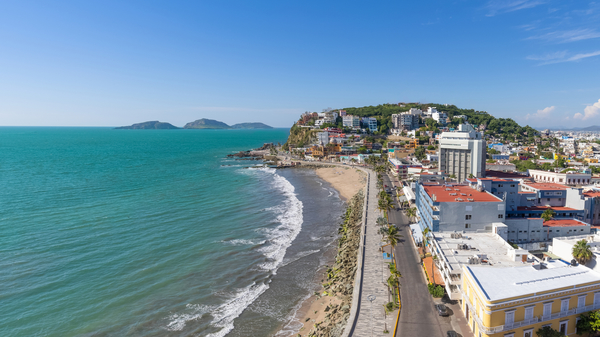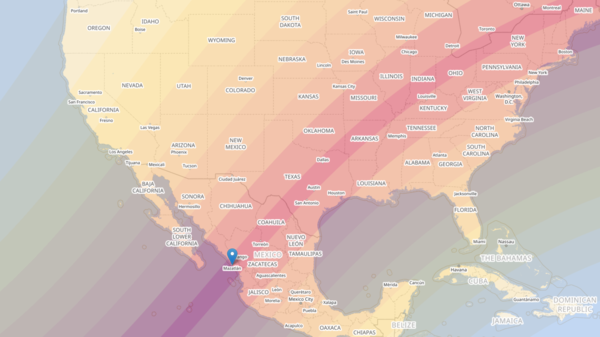“The Great American Eclipse?” It Starts in Mexico
With a little over a year to go until a total solar eclipse across North America, timeanddate has been helping local preparations in the city of Mazatlán.

Mazatlán, a city of around half a million people on Mexico’s Pacific coast, will be the first place in North America to see the Moon completely cover the Sun on April 8, 2024.
©iStockphoto.com/Elijah-Lovkoff
First to Witness Totality
On April 8, 2024, a total solar eclipse will sweep northeasterly across Mexico, through the USA, and into eastern Canada.
With around 400 days to go until the eclipse, timeanddate has helped launch an information campaign in the Mexican state of Sinaloa.
In collaboration with a local astronomy group, the Sociedad Astronómica Mazatleca (SAMAZ), we’ve been giving out eclipse information in Noroeste, a regional newspaper, and Son Playas, an independent journalism project that specializes in environmental and conservation issues.
The total solar eclipse of April 2024 will be visible along the very thin, dark band running across the center of this map: the path of totality. Mazatlán is highlited with a pin. Parts of North America outside the central band will experience a partial eclipse. ©timeanddate

A Grayish Darkness...
Residents of Mazatlán—the second-biggest city in Sinaloa—will be the first people to witness totality as the Moon’s shadow traverses the continent from the Pacific to the Atlantic.
Totality in Mazatlán will last about 4 minutes and 20 seconds, starting at 11:07 in the morning. A grayish darkness will fall over the city, and the ghostly solar corona, the outer part of the Sun's atmosphere, will appear around the Moon.
A Lot of Work to Be Done
David Esquivel—a teacher at the Autonomous University of Sinaloa, and the president of SAMAZ—has called for local organizations to be part of eclipse preparations.
“We consider it very important to undertake an information campaign and seek the participation of the tourism, business, and educational sectors,” he said. “With 400 days to go, there is a lot of work to be done to make this a memorable event that everyone can enjoy.”